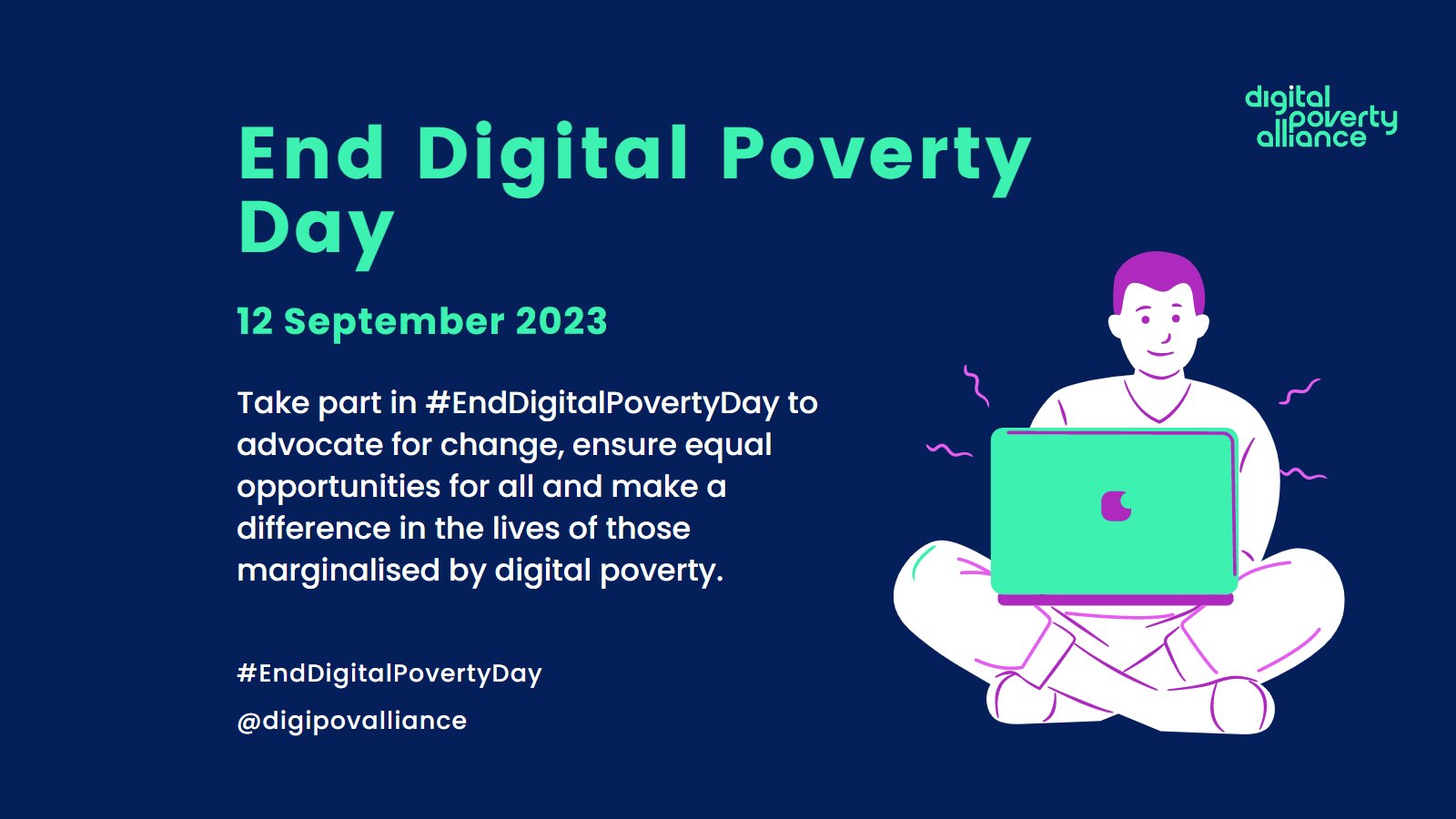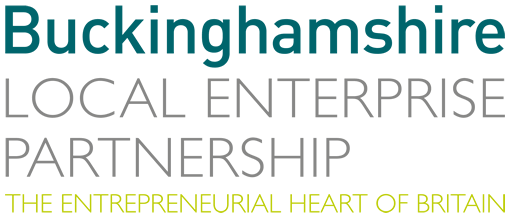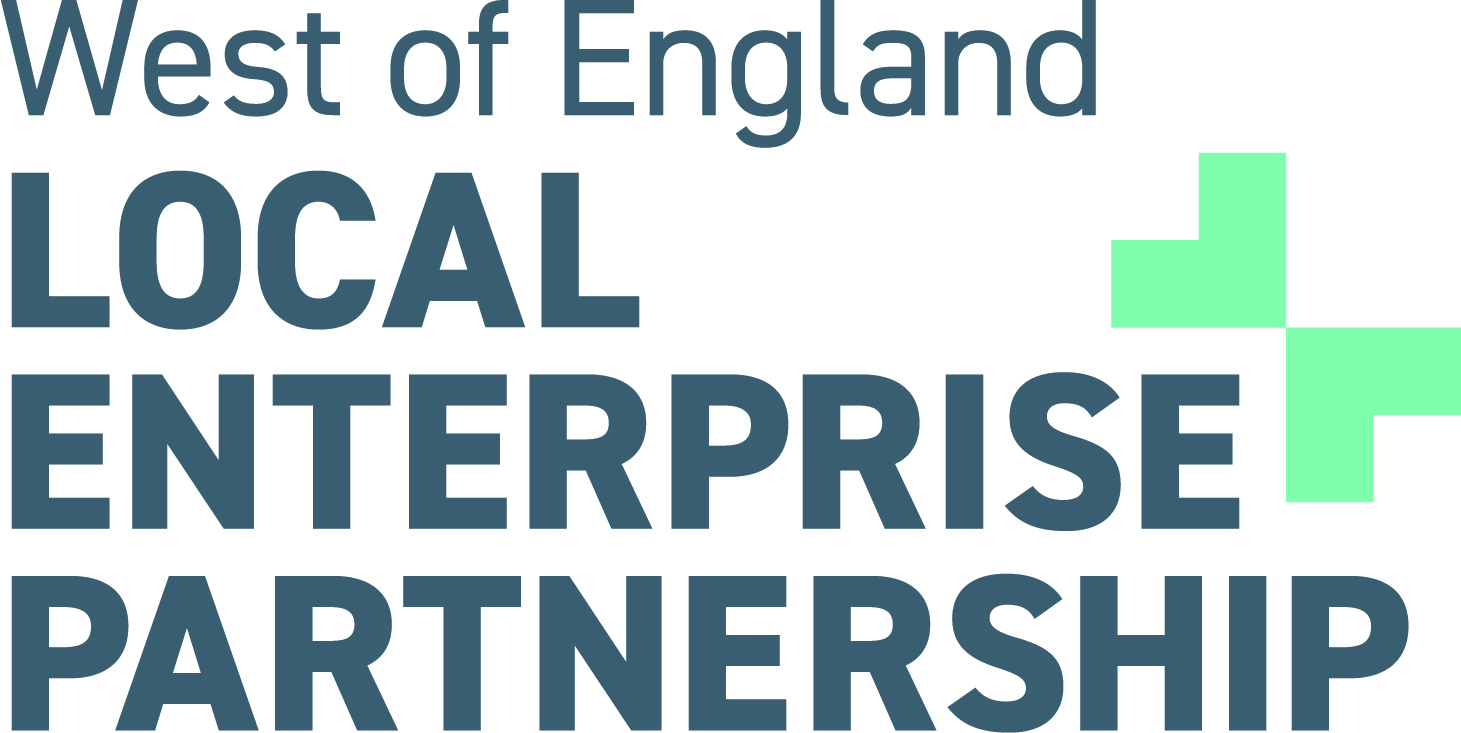Posted on:
12th September, 2023
LEPs join the battle to end digital poverty
Today is End Digital Poverty Day, an opportunity to focus on addressing digital poverty, raise awareness, promote practical actions, and rally support from individuals and organisations. Digital poverty is defined as the inability to interact with the online world fully, when where and how an individual needs to. As members of the Digital Poverty Alliance's National Delivery Committee, the LEP Network produced an overview of activity that LEPs are undertaking to help address digital poverty. Below is a snapshot of initiatives that LEPs are carrying out, either on their own or with their stakeholders.

Greater Manchester Combined Authority
During the pandemic, they took a number of measures to respond to the sudden shift to a heavily online world, including the rapid launch of the Greater Manchester Tech Fund, which supported more than 3,500 young people with donated/refurbished kit and data bundles to ensure access for home learning for those at risk of digital/data poverty, as well as using devolved AEB to provide grants to local authorities to tackle barriers to participation.
This supported take-up amongst disadvantaged learners of the digital skills entitlements, with access to kit as well as provision. Moving forwards, they have built on the momentum of that activity and previous digital strategies. Digital inclusion remains one of the strands of Greater Manchester’s Digital Blueprint, recently refreshed for 2023-26.
Lancashire LEP
Digital Freedoms – during lockdown they secured funding and worked with local and national partners to gift just over 500 devices to residents across Lancashire with data and skills support. Selnet (Social Enterprise Lancashire Network) led the project on their behalf with support from Lancashire Libraries. The Good Things Foundation supported with purchasing of devices. They focused on the over 50s, as the data suggested that this group were the most at risk of not only being the most digitally excluded but of greatest risk of loneliness and isolation.
Their scheme had a few basic principles that included not gifting a device to someone that was not known to the delivery partners of the scheme – as a result they worked with over 50 local community and voluntary sector groups to identify residents in need and these groups were the ones who physically delivered the device and gave the initial skills support to the resident. They could then signpost to other local skills provision or online support as needed. With some funding from public health, they started this project again early in 2023 working with a wider age range (19+) to help support access to online health information as a primary goal.
By the end of the project in early autumn, they will have supported approximately 1000 people across 12 districts in Lancashire. They are working with the contract holder for the Restart programme in Lancashire, G4S, to replicate a survey with Restart participants around digital inclusion to gain an updated insight in to local issues. This builds on earlier research they published in 2000 about this issue. They are also hoping, they can link this activity to work with Lloyds Academy on device and data gifting with skills support to extend what they have started with the Digital Freedoms programme.
Following an introduction from the LEP, Lancashire County Council are in discussions with The Good Things Foundation about donating their used laptops to their National Device Bank Scheme. Other local councils may also get involved in this endeavour as it has impact on individuals and the environment.
The Lancashire 2050 vision has an employment and skills section which the LEP leads on. Essential digital skills will feature. Equally the Infrastructure section mentions the need for fast reliable access to digital technology. They are also encouraging/supporting the Communities and place action plan to include the devices and data, digital champions aspect. In terms of their LSIP, there are many references to digital skills needs and raising the baseline of all members of the workforce. The wider digital poverty conversation is coming up a lot in discussions so the LSIP team feel in the next iteration that it may form a greater part of the conversation. They have shared social media resources and details with all their digital inclusion networks and leads in Lancashire encouraging involvement and support! The National Delivery Plan has given many of the organisations a framework to follow and build on. E.g., Preston City Council are presently looking to use UKSPF to focus activity of Digital Inclusion activity.
The NDP has been shared as a basis for activity and discussed. They have commissioned some work to get baseline data and to highlight issues in Preston.
Leeds City Region LEP
The West Yorkshire LSIP includes digital and technology as a priority and cites the clear linkages between the Social Digital Inclusion workstream of WYCA’s Digital Skills Partnership and Plan. The LSIP focuses on businesses’ digital skills needs, rather than individuals’ barriers to digital inclusion.
There was a lot of activity with donation of used tech devices during pandemic. Through their Local Digital Skills Partnership, the following activity took place:
- Laptops for children - working with local authority partners to provide support through the pandemic to create greater accessibility for home schooling, attracting 33,000+ laptops distributed to schools to support those in need.
- Donation of 500 laptops from the Asda Foundation to support school children and help with home schooling through the pandemic.
- Development of a device donation platform through Hubbub and led by 100% Digital Leeds to distribute to those requiring support. This secured support for over 500 individuals.
Via the DWP, there is some support through the Talk Talk offer by means of a 6-month broadband voucher purchased through the Flexible Support Fund (FSF). The funding is to provide connection to the internet for digital labour market related activities due to it presenting a barrier to their movement into work.
The Jobcentre Plus can also consider support if required for IT equipment on an individual basis in discussion with Work Coaches to remove this as a barrier.
Leicester and Leicestershire LEP
As part of Covid recovery work the LEP funded and facilitated seven digital inclusion projects. Further details can be found on the following website pages:
https://llep.org.uk/app/uploads/2023/07/LLEP-Digital-Poverty-Grants-update-June-2023.pdf
https://llep.org.uk/news/300k-llep-inclusion-grants-help-hundreds-build-digital-skills/
One of the projects, Refurb IT, collates and refurbs old laptops and IT equipment to be gifted to those in need. They always need more donations due to the demand. Part of their region’s LSIP work looks at digital generally. It is reported as a gap by employers so they are hoping that their developing Skills Bootcamps offer can address this.
They are finding that the Multiply programme can be offered along with digital skills support. Some of the area’s UKSPF programmes can also support basic digital skills.
Liverpool City Region LEP
They have been supporting the Metro Mayor’s ambition to ‘create a digitally inclusive city region where no one is left behind’.
Key activity includes various programmes such as:
- The recently launched Liverpool City Region Digital Inclusion Network, brings together a wide range of organisations who play a role in supporting this agenda. As part of this, they developed resources and collated support information for residents and practitioners through www.helpingyouonline.co.uk
- Facilitating the delivery of the Digital Inclusion Initiative, a unique partnership between Lloyds Banking Group, Vodafone and other partners – providing 4,750 free android tablets, 6 months of Vodafone SIM connectivity (with 40GB Data) and free in person digital skills training to residents in LCR.
- Providing identified ‘Digital Champions’ training and signposting to a range of useful digital learning tools to help others make the most of being online. As of September 2023, they have provided 50 champions who have gone on to support a further 90 individuals.
- Working with the Good Things Foundation, the Combined Authority is a registered National Databank and in partnership with internal teams is providing a total of 350 recycled Combined Authority iPhones, accompanying these with a 6-month sim card provided by the Databank to unemployed and economically inactive residents on their programme Households into Work, and their homelessness initiative, Housing First. As of September 2023, they have supported 180 participants. They are also working to encourage other organisations to register as databanks.
- The Combined Authority is also actively working with the Good Things Foundation to register as a National Devicebank, to repurpose old devices back into the community.
- As part of their joint venture LCR Connect, businesses, institutions and residents are being supported with the rollout of a 212km ultrafast network, enabling their region to lead the way on digital connectivity. Through the joint venture, select community hubs in each local authority area are also being supported with free broadband to enable individuals to benefit from free public Wi-Fi and digital support.
Funding has been sourced and utilised for a number of initiatives:
- They launched the £1.485m UKSPF Digital Connectivity for Community Facilities programme, which offers grants of up to £10,000 to grass roots, not-for-profit, Voluntary, Community, Faith and Social Enterprise (VCFSE) sector organisations with an operational (public access) base in the Liverpool City Region – to improve their public facing IT facilities (eg: computer drop in facilities).
- In the last year they have committed £879,000 in UKSPF funding to continue the delivery of the successful Include IT Mersey Digital Inclusion Programme.
- They have recently provided a £140,000 one-off fund as part of their LCR Cares Digital Inclusion Fund, which offered grants of up to £6,000 to VCFSE organisations to support practical digital skills engagement with three priority groups (Care Leavers, Refugees/Asylum Seekers and Victims of Domestic Violence)
- Through devolved Adult Education Budget (AEB), £1.1m was delivered on digital skills related AEB courses in 2021/22 alone. A further £2.8m has been committed in Wave 4 of the Skills Bootcamps towards courses and jobs in the digital sector.
The Marches
The Marches LSIP has identified the need for more digital skills training including simple short upskilling IT courses such as digital marketing. There is still a group of lower paid staff who have no access to technology and/or no understanding of how to use it, which prohibits them doing online training and upskilling. This is a clear barrier to progression.
They recognise the need to work with all stakeholders and employers to fit around the lack of mobility or equipment in the sectors where this is most relevant such as health and social care. They will look for practical solutions that do not involve costly or unattainable travel, work with shift patterns, and not erode worker confidence.
Solent LEP
They lead on the digital work for the Catalyst South group of LEPs. Their activity includes the Digital Switchover Action Group. Essex County council contacted the Digital Skills Partnership Solent/Catalyst South to ask about activity around raising awareness of the issues that will arise. There appears to be minimal activity happening especially in rural areas to support those who may not have the appropriate tech available in their homes when the full switchover happens. Initial discussions were had around doing a live Q&A between the regions digital leaders to then share the content through the LEP/LA social media channels to help raise awareness. Contact has also been made with Hampshire County Council to further support "connectivity" priorities and their rural taskforce team.
One of the pillars for the Catalyst South Digital Skills Partnership is "The Digital Human". This focusses on motivation, adaptability, confidence and trust when it comes to our uptake and usage of digital technology. It offers a unique perspective in the psychology behind our human interactions with technology.
They produce a #DigitalLives newsletter that shares stories and insights into how they are all tied to tech. Each issue always has an article on Digital Inclusion or Digital Poverty. This is their way of raising awareness of the issue. It is possible to subscribe here.
Following an introduction by the LEP Network to the DPA, they are keen to support more and would welcome information about further funding opportunities to keep their DSP going post 2023.
Swindon & Wiltshire LEP
They have a great relationship with an organisation based in Wiltshire but operating nationally called Green Machine. They adopt tech from businesses and then young people and people with special needs learn the skills to refurbish the machines. They then donate a lot of the tech to charities and schools.
West Yorkshire Combined Authority
In June 2023, the Combined Authority approved a programme of activity, under their devolved Gainshare funding, that includes a project to increase digital inclusion. This project will build the capacity of community organisations to deliver digital skills and access to those who are digitally excluded in local settings, across the West Yorkshire region. The project will implement an existing, successful model - the 100% Digital Leeds model, which has been hailed as a national trailblazer for its approach to tackling digital exclusion across the region.
This will involve:
- facilitation of digital inclusion signposting for community organisations;
- networks for peer support for VCSE sectors;
- coordination of regional digital inclusion funding bids;
- evaluation and data sourcing activity.
The DWP endorses this approach as complimentary to its own and is exploring financial support of this initiative. This is a West Yorkshire initiative and includes programme level outcomes, with flexibility for local delivery. It brings organisations together in either a community or place-based way, offering peer support and network building. Local support can be specific, for example to improve health and wellbeing outcomes and it aligns with Employment West Yorkshire. They have ensured that UKSPF Pillar 3 complements it.
Through their devolved Adult Education Budget, they have fully fund adults aged 19 or older and assessed at below level 2. They have increased the number of qualifications available under the Essential Digital Skills entitlement to remove barriers to engagement with clear progression routes from entry level to level 2.
Their AEB Community Learning funding offers innovative methods to engage with harder to reach, reluctant learners. They deliver embedded digital skills in trusted community locations while selling the benefits of digital skills to improve lives e.g., saving money on bills, using ‘better off in work’ online calculators, selling and banking online, and conducting employment searches using job sites.
Their Employment Support programme is delivered in partnership with Local Authorities and is piloting new local activity to help increase the take up of digital skills. In most areas assessments of digital competence are completed with support or signposting to support for clients where appropriate.




































 Back
Back
 View cookie policy
View cookie policy